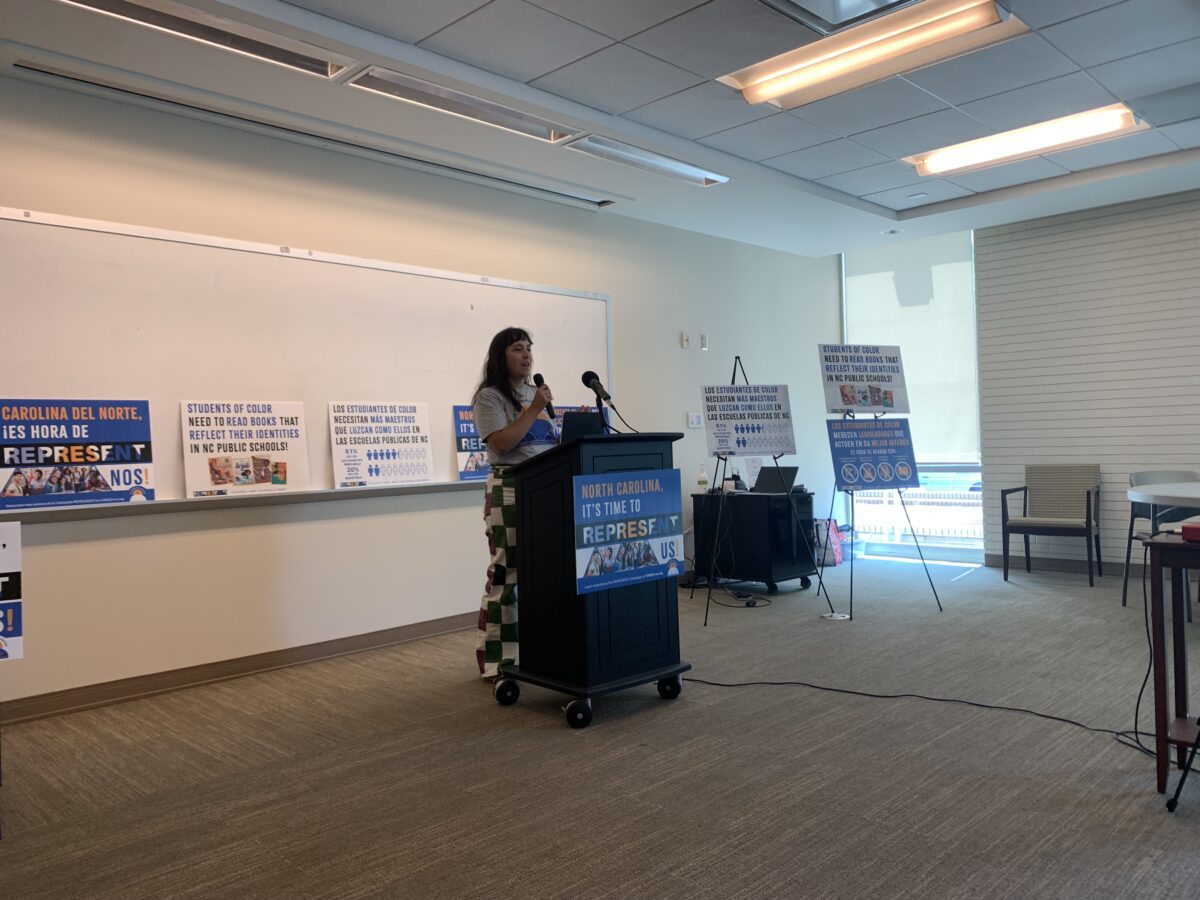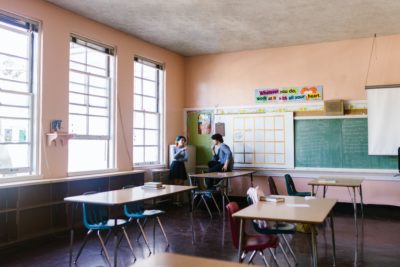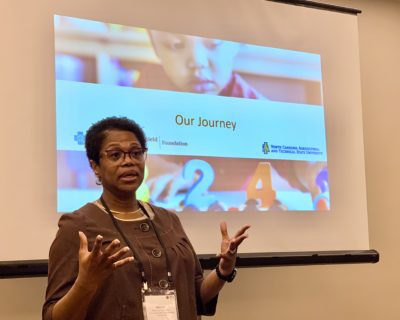
Share this story
|
|
Freedom Hill Coalition announced its new Represent! campaign at a press conference Thursday and said it plans to advocate for students of color in North Carolina’s public schools during the next two school years.
Jerry Wilson serves as director of policy and advocacy for the Center for Racial Equity in Education (CREED), one of the organizations in the coalition. Wilson said they want representation to be more active and not just a “box to check.”
“So we use the verb form of the word represent, because it signifies that the act of representing is ongoing, and it is ongoing, because the moment that you begin to think that you’ve done the job of representing, you are no longer representing those that you’re supposed to represent,” Wilson said. “ And that’s the case for too many policymakers. Unfortunately, that’s the case for some educators, and for curriculum and policies that are in place in North Carolina public schools today, and that’s what we aim to address.”
Sign up for the EdWeekly, a Friday roundup of the most important education news of the week.
The coalition shared several goals for the campaign. First, they want to advocate for short-term suspension appeals to be available in three additional North Carolina school districts by the end of the 2024-25 school year.
According to North Carolina law, a short-term suspension is defined as a disciplinary exclusion from a student’s assigned school for fewer than 10 days. The law also states that the student is not entitled to an appeal, and a review of the decision to suspend them is at the school district’s discretion.
Currently, the following districts allow students to appeal or request a review of their short-term suspension: Catawba, Cumberland, Charlotte-Mecklenburg, Dare, Guilford, Halifax, Hoke, Jones, Lexington City, Madison, Martin, Pamlico, Weldon City, and Whiteville City.
The coalition’s three additional or “target” districts have not been named at this time. Wilson said they are aiming for districts that have “the greatest need.”
Another goal shared by the coalition is to eliminate suspensions and expulsions of students in grades pre-K through eighth grade by December 2025.
“We know that these are traumatic experiences, that they don’t just remove students from the learning environment — they leave an indelible mark on how that student comes to think of themselves as a learner, and that’s the real harm of these policies and why we aim to combat them and eliminate them,” Wilson said.
Lucia Lozano Robledo, curriculum and program specialist at LatinxEd, shared goals on behalf of her organization. They aim to gather 100 stories from marginalized students, parents, educators, and community members by January 2025. These stories are meant to support a petition with 10,000 signatures from North Carolinians, demanding fair public school funding by December 2025, Robledo said.
“We know representation is really lacking in the education system, curriculum, our leadership, who are the school leaders, and who are creating these curriculums,” Robledo said. “So we want to identify these 100 stories and leverage them.”
Read more


Keiyonna Dubashi, executive director of Profound Ladies, said that they want to shift the narrative around public schools being the “Boogey Man.”
“So with the encouragement of school choice, which we do believe that every child and every family should have a choice of schools, this divestment of work away from public schools is impacting marginalized communities and black and brown students directly,” Debashi said.
Freedom Hill Coalition is comprised of 15 organizations making an effort to “make sure that all children in North Carolina are receiving the high-quality education that they deserve,” Wilson said. They connect the idea of education with liberation, as the coalition is named after the first settlement of formerly enslaved people in Edgecombe County.
The campaign is expected to last 16 months.
Recommended reading




